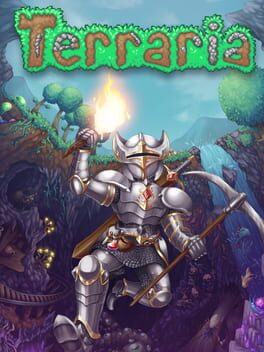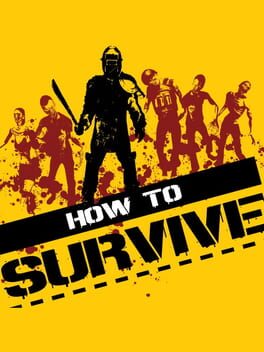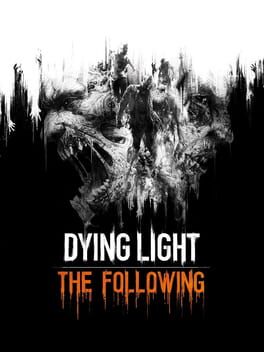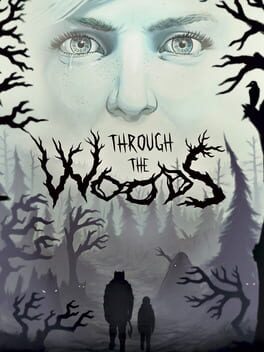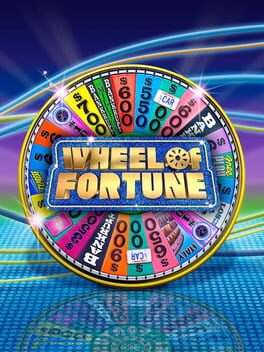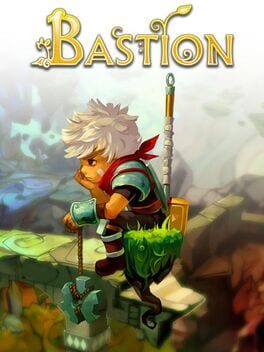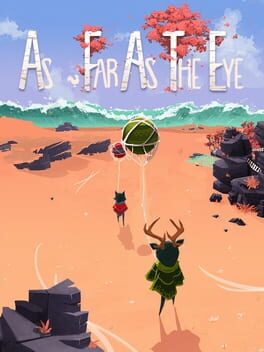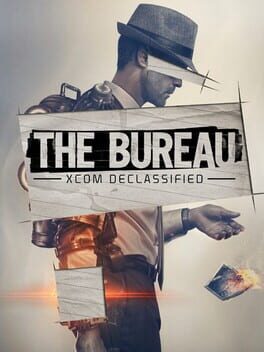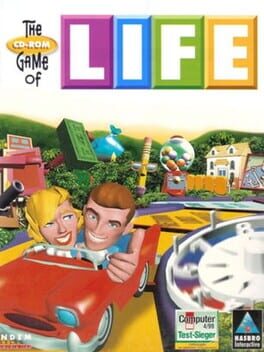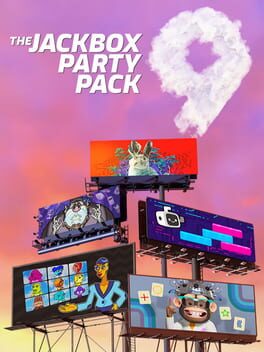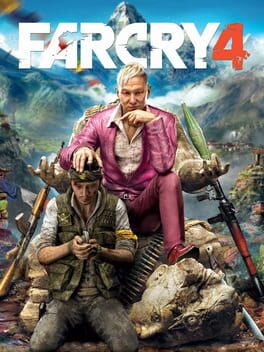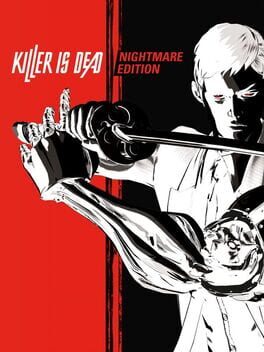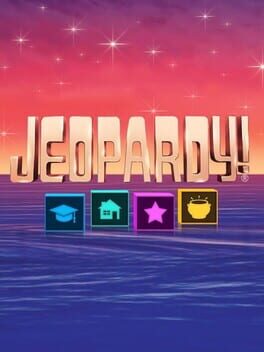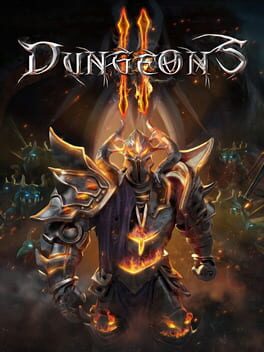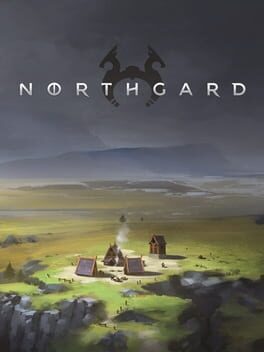astarrgames
2011
Pretty much a "2D Minecraft" as anyone else would suggest, with probably more emphasis on combat and diversity of enemies.
It's neat to explore and learn about the game without much onboarding. However, there is so much hidden and undiscoverable beneath the surface (pun intended), that might only show up in Wikis for the game.
It's neat to explore and learn about the game without much onboarding. However, there is so much hidden and undiscoverable beneath the surface (pun intended), that might only show up in Wikis for the game.
2013
Great story and gameplay. A lot of new and interesting components for an action-RPG zombie game, like crafting and the aiming system. There's a lot of interesting weapons and variations to choose from.
I haven't been able to play with friends online yet, but there are plenty of extra missions to keep the game interesting and replay value up.
I haven't been able to play with friends online yet, but there are plenty of extra missions to keep the game interesting and replay value up.
This is such a good expansion to Dying Light and in some cases I prefer it to the original map and story. If you enjoyed Dying Light, this is an absolute must play through.
The story picks up right where you left off in Dying Light and you enter the farmlands outside of the city. All the quests tie in with progression, which as an achievement hunter, was kind of awkward. I advanced my level beyond the story by doing every side quest and event before the story-line, which meant that I had a higher faction reputation than what the story would suggest. This storyline gives a new mystery and conclusion to a zombie story - but not the zombie story. It's really interesting, and somewhat spoiled if you're following Dying Light 2 news. So dig into this first.
I really love farm maps in any game I play, which means I love this one a lot. I understand how it can be frustrating, because it's a flat open land where you will try to evade some zombie pursuits. I'm in New Game+ and infected will spawn randomly in the distance every 3-5 minutes, making it difficult to walk around and force me to drive. The driving is very nice though, the buggy feels better as it upgrades as well as very vulnerable, which is important in a zombie game.
Some minor gameplay tweaks were added that make sense for this kind of level. No new additions of zombie types, unfortunately, but they change some interactions, which is necessary considering you're driving most of this game.
The Following is really a change of scenery in the most-part. If you liked the base-game, this is essentially more of that with a vehicle and new terrain. Both of those things are awesome.
The story picks up right where you left off in Dying Light and you enter the farmlands outside of the city. All the quests tie in with progression, which as an achievement hunter, was kind of awkward. I advanced my level beyond the story by doing every side quest and event before the story-line, which meant that I had a higher faction reputation than what the story would suggest. This storyline gives a new mystery and conclusion to a zombie story - but not the zombie story. It's really interesting, and somewhat spoiled if you're following Dying Light 2 news. So dig into this first.
I really love farm maps in any game I play, which means I love this one a lot. I understand how it can be frustrating, because it's a flat open land where you will try to evade some zombie pursuits. I'm in New Game+ and infected will spawn randomly in the distance every 3-5 minutes, making it difficult to walk around and force me to drive. The driving is very nice though, the buggy feels better as it upgrades as well as very vulnerable, which is important in a zombie game.
Some minor gameplay tweaks were added that make sense for this kind of level. No new additions of zombie types, unfortunately, but they change some interactions, which is necessary considering you're driving most of this game.
The Following is really a change of scenery in the most-part. If you liked the base-game, this is essentially more of that with a vehicle and new terrain. Both of those things are awesome.
2016
This review contains spoilers
Played and written October 30, 2020:
I played and finished this on stream for spooooooky October and had conflicting feelings about it.
I'm playing with English audio, which may have an impact. Overall, I found the environment and monsters great and scary! However, I have huge problems with the story and characters.
I didn't know what to expect going into this, and was really creeped out as the sun sank going through what seemed like an abandoned village. There was good suspense building up to the encounters, and meeting the creatures had been creepy but intriguing. It looks beautiful, the skyline and how it changes throughout the story is impactful, and the sound design really fit well with the environment and added to the eeriness of the world.
The game is a little clunky and stiff, as walking over rocks or other objects really impacts the character's position in camera and the camera perspective. I also believe I had an encounter that was bugged, where I believe a monster was supposed to kill me but I walked through them a bunch of times - there's an achievement to die from them from what I gathered.
After a while, the protagonist became frustrating. There are audio lines that sound and feel unrealistic considering what I've experienced already in the storyline. For example, I don't know if playing with English audio had an impact on the poor quality voice acting or the rhythm of dialogue, but I felt like a few things were delayed or did not make contextual sense.
While that stuff I could laugh off and still be convinced I was in a horrifying world, there are politics in this. The protagonist's backstory is brought up at the climax, which unfortunately reinforces my dislike of the character I'm playing. Her story is
There are a lot of problems to unpack with this climatic story line. I gave the benefit of a doubt to the writers and looked up local Norway statistics and analysis of this, but this narrative has the same problems if it were written in North America. While I can absolutely remove this game from reality and our real lives, there is an huge problem with telling fictitious stories that involve real life social issues and use myths raised by Edit: Also, how did I forget that every time
There are ways to talk about these tropes, but how it was handled here really turned me off of the game. This plot line reminded me so much of The Room I think I exclaimed it out loud on stream and just pushed to finish it. It's also what tipped me off to not recommend this, otherwise I would have felt this was a fine scare for a little bit with some clunkiness.
I played and finished this on stream for spooooooky October and had conflicting feelings about it.
I'm playing with English audio, which may have an impact. Overall, I found the environment and monsters great and scary! However, I have huge problems with the story and characters.
I didn't know what to expect going into this, and was really creeped out as the sun sank going through what seemed like an abandoned village. There was good suspense building up to the encounters, and meeting the creatures had been creepy but intriguing. It looks beautiful, the skyline and how it changes throughout the story is impactful, and the sound design really fit well with the environment and added to the eeriness of the world.
The game is a little clunky and stiff, as walking over rocks or other objects really impacts the character's position in camera and the camera perspective. I also believe I had an encounter that was bugged, where I believe a monster was supposed to kill me but I walked through them a bunch of times - there's an achievement to die from them from what I gathered.
After a while, the protagonist became frustrating. There are audio lines that sound and feel unrealistic considering what I've experienced already in the storyline. For example, I don't know if playing with English audio had an impact on the poor quality voice acting or the rhythm of dialogue, but I felt like a few things were delayed or did not make contextual sense.
While that stuff I could laugh off and still be convinced I was in a horrifying world, there are politics in this. The protagonist's backstory is brought up at the climax, which unfortunately reinforces my dislike of the character I'm playing. Her story is
There are a lot of problems to unpack with this climatic story line. I gave the benefit of a doubt to the writers and looked up local Norway statistics and analysis of this, but this narrative has the same problems if it were written in North America. While I can absolutely remove this game from reality and our real lives, there is an huge problem with telling fictitious stories that involve real life social issues and use myths raised by Edit: Also, how did I forget that every time
There are ways to talk about these tropes, but how it was handled here really turned me off of the game. This plot line reminded me so much of The Room I think I exclaimed it out loud on stream and just pushed to finish it. It's also what tipped me off to not recommend this, otherwise I would have felt this was a fine scare for a little bit with some clunkiness.
2017
This is a fine Wheel of Fortune game.
For an Ubisoft licensed video gameshow, this is one of the better, but that's a low bar. Between these types of games, they tend to choose different features that work or don't work well.
To start, the WoF part is good - if you like it. The input methods are decent, the game setup is just like the TV show, and the rounds can be fun. It has the excellent feature of skipping each scene of dialogue between characters and host, which is absolutely necessary for replaying the game.
Then there's a bunch of problems. First, spinning the wheel with the full gauge always lands in the same spot. This could either make for a frustrating metagame or frustrating predictable outcomes.
Then there's the customization. These unlock gradually in a strange order for the set, hosts and playable characters. There's a lot of unnecessary micro-customization (like shoes you don't see) on generic character models, but they don't save, and slogging through UI to even escape the default white-guy-with-blonde-hair is itself a horribly unexciting mini-game.
It is a relief that after so many rounds of this game, we haven't seen a repeat of answers. Again, this is a fine Wheel of Fortune. I also need to mention that Ubisoft is run by abusers and probably fascists as well.
For an Ubisoft licensed video gameshow, this is one of the better, but that's a low bar. Between these types of games, they tend to choose different features that work or don't work well.
To start, the WoF part is good - if you like it. The input methods are decent, the game setup is just like the TV show, and the rounds can be fun. It has the excellent feature of skipping each scene of dialogue between characters and host, which is absolutely necessary for replaying the game.
Then there's a bunch of problems. First, spinning the wheel with the full gauge always lands in the same spot. This could either make for a frustrating metagame or frustrating predictable outcomes.
Then there's the customization. These unlock gradually in a strange order for the set, hosts and playable characters. There's a lot of unnecessary micro-customization (like shoes you don't see) on generic character models, but they don't save, and slogging through UI to even escape the default white-guy-with-blonde-hair is itself a horribly unexciting mini-game.
It is a relief that after so many rounds of this game, we haven't seen a repeat of answers. Again, this is a fine Wheel of Fortune. I also need to mention that Ubisoft is run by abusers and probably fascists as well.
2011
I finished this game 9 years after its release when the developers have probably just made 2020's Game of the Year.
It's great, as the reviews indicate. The only negatives I'm seeing is personal preference towards narration and voice overs during gameplay.
As for an action-adventure hack-and-slash, it's fun and unique - mostly because of how the world builds around you. The weapons and enemies vary and change enough that you will be challenged, but can find something that feels really comfortable to upgrade and use. I played on normal, but there's an easy mode to just get through the story and experience it.
After 9 years, the graphics and sound design are still fine. The cartoon-y worlds, platforms and characters were just detailed enough to still look decent enough almost a decade later. Some level and object design may not indicate enough that there's a hazard or safe spot to walk on the decaying landscape you're navigating. Sometimes that's intentional, and it's actually very interesting and exciting. The music is still good and hits the beats of the stories appropriately.
The story I think is what a lot of people come to this and other Supergiant games for. I felt it was just fine, I wasn't too invested in the protagonist, narrator or side characters. However, it was the world that actually impacted me more. Each are well written and the plot comes out of every action you take in the game, as well as neat and interesting mechanics that come out of the plot.
This is a classic and has overwhelmingly positive reviews for a lot of reasons.
It's great, as the reviews indicate. The only negatives I'm seeing is personal preference towards narration and voice overs during gameplay.
As for an action-adventure hack-and-slash, it's fun and unique - mostly because of how the world builds around you. The weapons and enemies vary and change enough that you will be challenged, but can find something that feels really comfortable to upgrade and use. I played on normal, but there's an easy mode to just get through the story and experience it.
After 9 years, the graphics and sound design are still fine. The cartoon-y worlds, platforms and characters were just detailed enough to still look decent enough almost a decade later. Some level and object design may not indicate enough that there's a hazard or safe spot to walk on the decaying landscape you're navigating. Sometimes that's intentional, and it's actually very interesting and exciting. The music is still good and hits the beats of the stories appropriately.
The story I think is what a lot of people come to this and other Supergiant games for. I felt it was just fine, I wasn't too invested in the protagonist, narrator or side characters. However, it was the world that actually impacted me more. Each are well written and the plot comes out of every action you take in the game, as well as neat and interesting mechanics that come out of the plot.
This is a classic and has overwhelmingly positive reviews for a lot of reasons.
2020
Wow! A non-combative 4X with little animals that just harvest rocks, trees and stuff. Yet, this is a horrifically stressful and bleak game. I'd compare it to Oregon Trail, where you manage a group of travellers to reach their goal of a final location. Instead of the road being harsh on the travellers, you're playing every stop in order to survive or fail.
I believe I played as each tribe with their own starting conditions, but haven't completed every journey. I still feel that is enough to get a sense of the game and recommend it.
It is a fun but challenging strategy and colony simulator game. Thankfully, each location and traits among the travellers are randomized. There is a very stressful time allotted to each land, so exploring needs to be properly balanced with laying a foundation for everyone to start working.
Each traveller grows with experience based on the work they're doing, and resources that can be applied for the entire journey. The skill trees of individual travellers is an excellent aspect of this game, and really provides character to these little creatures you control.
There's a struggle to manage surviving and meeting the exit goal for each land, along with misfortunes thrown at the world sporadically. This is fun and rather tense the closer the time limit approaches, but it leads directly into the frustrating stalemate the game places the player in.
This game offers incredible replay value, which will be happening because of how brutally unforgiving it is. If you're doing well in a land, there is no mechanic to snowball into an overpowered force. Instead, every event that occurs or new land that is explored will take so much out of your resources, worker, or the land you're on, that every stop is a struggle. Furthermore, these struggles feel like mostly uphill battles, which is unfortunate because there will be times in when the player will overcome challenges and be aiming on a trajectory to skid to the finish line, then a few turns later the game is essentially lost due to a surprise event that took the only remaining resources needed to advance.
Even though I was successful in my first run of the game, I skipped the in-game tutorial (there are also tutorial prompts in the game). I understood it fairly quickly, but there are some menus and values in the game that require tooltips, or have their explanations buried in sub-menus.
Returning to the beginning isn't a bad thing though. The start of each game is exciting and full of possibilities that may not be the same with every run. As Far As the Eye is a very interesting 4X game that is incredibly punishing that rewards forward-thinking strategies and sacrifices not often seen in the genre.
I believe I played as each tribe with their own starting conditions, but haven't completed every journey. I still feel that is enough to get a sense of the game and recommend it.
It is a fun but challenging strategy and colony simulator game. Thankfully, each location and traits among the travellers are randomized. There is a very stressful time allotted to each land, so exploring needs to be properly balanced with laying a foundation for everyone to start working.
Each traveller grows with experience based on the work they're doing, and resources that can be applied for the entire journey. The skill trees of individual travellers is an excellent aspect of this game, and really provides character to these little creatures you control.
There's a struggle to manage surviving and meeting the exit goal for each land, along with misfortunes thrown at the world sporadically. This is fun and rather tense the closer the time limit approaches, but it leads directly into the frustrating stalemate the game places the player in.
This game offers incredible replay value, which will be happening because of how brutally unforgiving it is. If you're doing well in a land, there is no mechanic to snowball into an overpowered force. Instead, every event that occurs or new land that is explored will take so much out of your resources, worker, or the land you're on, that every stop is a struggle. Furthermore, these struggles feel like mostly uphill battles, which is unfortunate because there will be times in when the player will overcome challenges and be aiming on a trajectory to skid to the finish line, then a few turns later the game is essentially lost due to a surprise event that took the only remaining resources needed to advance.
Even though I was successful in my first run of the game, I skipped the in-game tutorial (there are also tutorial prompts in the game). I understood it fairly quickly, but there are some menus and values in the game that require tooltips, or have their explanations buried in sub-menus.
Returning to the beginning isn't a bad thing though. The start of each game is exciting and full of possibilities that may not be the same with every run. As Far As the Eye is a very interesting 4X game that is incredibly punishing that rewards forward-thinking strategies and sacrifices not often seen in the genre.
It's a third-person X-Com game in real-time. It's not bad, but I'm sure there's better in the series and in the genre.
I've played the original X-Com games in dos when they came out - except everything after apocalypse. This feels like the new X-Com: Enemy Unknown but in real-time, and commanding a small squad from the ground.
I enjoyed the 1960's atmosphere, and found some scenerios creepy and had a lot of fun with it. It feels like a breeze to get through so far, and too linear to come back and replay - unlike the original X-Coms and the newer ones. Action sequences are also too infrequent for what I like, and there's rarely any aliens outside of staged shoot-outs. I was never expecting one to jump out, or be caught in a room with a couple of them.
I haven't played enough third-person shooters, but I found this one lacking - especially around commands and weapons. ex. I can't tell my squad to take cover and protect themselves, and the weapons are the same series of pistol, rifle, shotgun, sniper rifle, rocket launcher but with different technologies.
My only other complaint is that I felt that running to and out of cover felt sticky (I take cover everywhere), not sticky enough (I need cover but can't get down), and delayed interactions with cover - like rolling or running out. I'm using a keyboard and mouse and heard that gamepads feel better to use.
I think those complaints are too minor to pass up this. It really feels like you're taking a small squad from Enemy Unknown and playing out their combat during the 1960's. Your fights depend on your skill, creativity, how well your command your squad, and your attention to the battlefield. The storyline is interesting, and I'm glad there's options in your interactions - although I don't know how it affects gameplay or the story.
I've played the original X-Com games in dos when they came out - except everything after apocalypse. This feels like the new X-Com: Enemy Unknown but in real-time, and commanding a small squad from the ground.
I enjoyed the 1960's atmosphere, and found some scenerios creepy and had a lot of fun with it. It feels like a breeze to get through so far, and too linear to come back and replay - unlike the original X-Coms and the newer ones. Action sequences are also too infrequent for what I like, and there's rarely any aliens outside of staged shoot-outs. I was never expecting one to jump out, or be caught in a room with a couple of them.
I haven't played enough third-person shooters, but I found this one lacking - especially around commands and weapons. ex. I can't tell my squad to take cover and protect themselves, and the weapons are the same series of pistol, rifle, shotgun, sniper rifle, rocket launcher but with different technologies.
My only other complaint is that I felt that running to and out of cover felt sticky (I take cover everywhere), not sticky enough (I need cover but can't get down), and delayed interactions with cover - like rolling or running out. I'm using a keyboard and mouse and heard that gamepads feel better to use.
I think those complaints are too minor to pass up this. It really feels like you're taking a small squad from Enemy Unknown and playing out their combat during the 1960's. Your fights depend on your skill, creativity, how well your command your squad, and your attention to the battlefield. The storyline is interesting, and I'm glad there's options in your interactions - although I don't know how it affects gameplay or the story.
1998
This is a real weird trip to make in 2023, but some family wanted to feel nostalgic so we got an emulator to run our old CD.
The board is from an era where a family game night was a single board game played over a long period of time, unlike the newer Game of Life games for PC or Switch. The board is more interesting than newer versions, and the game offers two modes that interact with tiles only slightly differently. One mode offers slight variations for landing on tiles, including mini-games that are either randomized money drops or memory match games.
I feel that buying a house in this game offers absolutely nothing to the gameplay or outcome. It's such a weird aspect that I'm not sure why it's not calculated to the total score - or more visible in the game somehow.
I think the most interesting part of this game is its presentation. It's not interesting because it's neat or good to look at, but it's an absolutely bizarre time capsule of the 1990's.
There's really poorly drawn MS Paint comics with narrated jokes that are so intensely cringe-inducing that I threw my back muscles out. Then there's laughable 3D cut scenes that are ugly by today's standards - like really bad test animations for Toy Story or Shrek. The game presents a lot of heterosexist, homophobic and racist tropes that were outdated from cultural norms even long before the CD-ROM was initially released. Also, the music is oddly decent for its time and production value.
There was a shift into what The Game of Life 2 for Switch became, which didn't take enough from this board or game to be much better.
I would only recommend replaying this for nostalgia, creating a video essay on bigotry entrenched in 1990's popular culture or for a good laugh at the "so bad it's good" of the animation and jokes.
The board is from an era where a family game night was a single board game played over a long period of time, unlike the newer Game of Life games for PC or Switch. The board is more interesting than newer versions, and the game offers two modes that interact with tiles only slightly differently. One mode offers slight variations for landing on tiles, including mini-games that are either randomized money drops or memory match games.
I feel that buying a house in this game offers absolutely nothing to the gameplay or outcome. It's such a weird aspect that I'm not sure why it's not calculated to the total score - or more visible in the game somehow.
I think the most interesting part of this game is its presentation. It's not interesting because it's neat or good to look at, but it's an absolutely bizarre time capsule of the 1990's.
There's really poorly drawn MS Paint comics with narrated jokes that are so intensely cringe-inducing that I threw my back muscles out. Then there's laughable 3D cut scenes that are ugly by today's standards - like really bad test animations for Toy Story or Shrek. The game presents a lot of heterosexist, homophobic and racist tropes that were outdated from cultural norms even long before the CD-ROM was initially released. Also, the music is oddly decent for its time and production value.
There was a shift into what The Game of Life 2 for Switch became, which didn't take enough from this board or game to be much better.
I would only recommend replaying this for nostalgia, creating a video essay on bigotry entrenched in 1990's popular culture or for a good laugh at the "so bad it's good" of the animation and jokes.
Like with every Jackbox, most of the enjoyment of the game comes from the people you play with. That written, the games included in the Jackbox Party Packs need the prompts and mechanisms that allow for people to get together and have fun. Jackbox 9 overall does a decent job of this, but with some issues.
Fibbage 4 is a sequel to a previous game series and doesn't divert away from the formula. They've included a new style of prompt (a video) and edited out a final prompt in the mini-mini-game Enough About You - which my friends actually prefer. It's a well done quiz game with plenty of fun and exciting contributions from both the game and players.
Quixort is the new trivia game that is sorting answers. It's a strange choice, as the trivia games included in previous party packs (You Don't Know Jack, Trivia Murder Party and The Wheel) were exceptionally well done. The player needs to sort answers on their phone using a Tetris-like block placed on a line, which is confusing to some people I've played with, leading to some difficulty that wasn't fun. As well, the final round makes the player replay their final prompt, which is an interesting decision, but ultimately leaves anyone I've played with frustrated and disappointed. The game also has the unfortunate problem of making a second player or group of players wait for another team to finish playing the game for a long time - unlike most of the other trivias.
Junktopia is also one of the least favourite among my friends and family. It was a forgettable experience, as everyone had to ask whether we've already played it or not. Part of the issue is that the player's contributions are simply two prompts regarding an item they're describing. Other Jackbox games use this feature (Survive the Internet) but give some variation to the purpose of writing prompts. This game, again, makes the unfortunate choice of repeating the final prompt - bringing all of your previous items together to just name them. This makes the game repetitive with a longer period of time without engaging in unique or creative input from players.
Nonsensory is a surprisingly fun and enjoyable game. It reminded us of Guesspionage (JBPP3), as players attempt to find the hidden value (between 1-10 mostly) of a prompt. Players each make their own content which others guess at. This leads to much more excitement and engagement from everyone involved.
Finally, Roomerang is an interesting and well-designed game. It requires the players to role-play a character, which my group doesn't actually do - and instead treating the game like a Quiplash, where we vote the funniest prompts. Despite human error, this game does have one striking fault, which is that players produce so much content in the game that is not very well visible, or immediately erased from the screen after showing them. Our group typically adds more time to answering prompts, but there wasn't an option to extend viewing the responses, which is what we would have needed.
Despite all of that, the Jackbox Games continue to be some of the most fun party games that are accessible to all sorts of groups, as long as they have smartphones. I still highly recommend this, if not just for half of the games included for their exceptional design. Players will still need to bring others into their games to find out what is fun and how they can all enjoy the games together.
Fibbage 4 is a sequel to a previous game series and doesn't divert away from the formula. They've included a new style of prompt (a video) and edited out a final prompt in the mini-mini-game Enough About You - which my friends actually prefer. It's a well done quiz game with plenty of fun and exciting contributions from both the game and players.
Quixort is the new trivia game that is sorting answers. It's a strange choice, as the trivia games included in previous party packs (You Don't Know Jack, Trivia Murder Party and The Wheel) were exceptionally well done. The player needs to sort answers on their phone using a Tetris-like block placed on a line, which is confusing to some people I've played with, leading to some difficulty that wasn't fun. As well, the final round makes the player replay their final prompt, which is an interesting decision, but ultimately leaves anyone I've played with frustrated and disappointed. The game also has the unfortunate problem of making a second player or group of players wait for another team to finish playing the game for a long time - unlike most of the other trivias.
Junktopia is also one of the least favourite among my friends and family. It was a forgettable experience, as everyone had to ask whether we've already played it or not. Part of the issue is that the player's contributions are simply two prompts regarding an item they're describing. Other Jackbox games use this feature (Survive the Internet) but give some variation to the purpose of writing prompts. This game, again, makes the unfortunate choice of repeating the final prompt - bringing all of your previous items together to just name them. This makes the game repetitive with a longer period of time without engaging in unique or creative input from players.
Nonsensory is a surprisingly fun and enjoyable game. It reminded us of Guesspionage (JBPP3), as players attempt to find the hidden value (between 1-10 mostly) of a prompt. Players each make their own content which others guess at. This leads to much more excitement and engagement from everyone involved.
Finally, Roomerang is an interesting and well-designed game. It requires the players to role-play a character, which my group doesn't actually do - and instead treating the game like a Quiplash, where we vote the funniest prompts. Despite human error, this game does have one striking fault, which is that players produce so much content in the game that is not very well visible, or immediately erased from the screen after showing them. Our group typically adds more time to answering prompts, but there wasn't an option to extend viewing the responses, which is what we would have needed.
Despite all of that, the Jackbox Games continue to be some of the most fun party games that are accessible to all sorts of groups, as long as they have smartphones. I still highly recommend this, if not just for half of the games included for their exceptional design. Players will still need to bring others into their games to find out what is fun and how they can all enjoy the games together.
2014
I haven't played much in the series, as my first introduction was Blood Dragon and then the fifth in the series. If this were my first Far Cry game, I would have been ecstatic to put about 40 hours into this game, but even without completing most of the collectables and achievements, it's a real drag. It's a very pretty and well-made drag, though.
Most of Ubisoft's games contribute to a sense of open-world fatigue. Far Cry 4's map is huge, pretty and well-designed, but traversing it over and over again can be a chore. That space is filled with repetitive side quests or unscripted events that redirect the player's attention (or interrupt what they were doing), and that's if you're ignoring the collectibles. Not only that, but to span the massive map, you'll probably have to drive and listen to the same radio DJ set from the start over and over again - with some pretty decent music scattered in there.
It's so oddly paced too. I didn't even attempt to grind, but rather simply unlock guns by collecting and finishing some quests. About 60% into the game, I had maxed out my XP, money and karma. Alongside a few minor bugs, those are the technical problems I have with this game.
Then there's the story, and what an "apolitical" Ubisoft tends to do is tell the most middling political stories with an undertone of authoritarian capitalism as the default human condition. If they're not poorly explaining the horrors of fascism, they're writing in nihilistic defeatism, and that there are no hope for revolutionary struggles. While it's not only ahistorical and inaccurate, they're playing in a space of highly budgeted storytelling with potentially hundreds of designers and writers, but end up rehashing Thomas Hobbes' Leviathan - or status quo centrism in lieu of creative and speculative fiction.
Then again, Ubisoft has been run by abusers and probably fascists, which could explain this kind of narrative in their games.
Most of Ubisoft's games contribute to a sense of open-world fatigue. Far Cry 4's map is huge, pretty and well-designed, but traversing it over and over again can be a chore. That space is filled with repetitive side quests or unscripted events that redirect the player's attention (or interrupt what they were doing), and that's if you're ignoring the collectibles. Not only that, but to span the massive map, you'll probably have to drive and listen to the same radio DJ set from the start over and over again - with some pretty decent music scattered in there.
It's so oddly paced too. I didn't even attempt to grind, but rather simply unlock guns by collecting and finishing some quests. About 60% into the game, I had maxed out my XP, money and karma. Alongside a few minor bugs, those are the technical problems I have with this game.
Then there's the story, and what an "apolitical" Ubisoft tends to do is tell the most middling political stories with an undertone of authoritarian capitalism as the default human condition. If they're not poorly explaining the horrors of fascism, they're writing in nihilistic defeatism, and that there are no hope for revolutionary struggles. While it's not only ahistorical and inaccurate, they're playing in a space of highly budgeted storytelling with potentially hundreds of designers and writers, but end up rehashing Thomas Hobbes' Leviathan - or status quo centrism in lieu of creative and speculative fiction.
Then again, Ubisoft has been run by abusers and probably fascists, which could explain this kind of narrative in their games.
2017
This is terrible, and it managed to be the worst of the Ubisoft licensed digital gameshows.
Jeopardy is difficult to put into a video game. When televised, it's a game that relies heavily on highly-educated people with a wide breadth of knowledge. When digitized, the game depends on player input to be accurately typed in. Here, it's a multiple-choice question. If you have the faintest clue of what the answer will be, it'll be actualized infront of you - or you can just guess and you'll have a 1/4 shot (even higher chances when an obviously wrong answer is present).
Unlike other Ubisoft, there's no customization, set or host to make things a little bit more fun. Instead, what you unlock are categories - making progression in the game dependent on playing the game as opposed to readily available for the player. The problem with "grinding" in Jeopardy! as opposed to an MMORPG is that you're immediately given the same prompts. We've played about 3-4 games and had consistently repeated prompts, which absolutely breaks this game.
I tried to get a refund, because this game is really not fun and not worth the money at all. It's more fun to watch the show and guess the questions before contestants. I also need to mention that Ubisoft is run by abusers and probably fascists as well.
Jeopardy is difficult to put into a video game. When televised, it's a game that relies heavily on highly-educated people with a wide breadth of knowledge. When digitized, the game depends on player input to be accurately typed in. Here, it's a multiple-choice question. If you have the faintest clue of what the answer will be, it'll be actualized infront of you - or you can just guess and you'll have a 1/4 shot (even higher chances when an obviously wrong answer is present).
Unlike other Ubisoft, there's no customization, set or host to make things a little bit more fun. Instead, what you unlock are categories - making progression in the game dependent on playing the game as opposed to readily available for the player. The problem with "grinding" in Jeopardy! as opposed to an MMORPG is that you're immediately given the same prompts. We've played about 3-4 games and had consistently repeated prompts, which absolutely breaks this game.
I tried to get a refund, because this game is really not fun and not worth the money at all. It's more fun to watch the show and guess the questions before contestants. I also need to mention that Ubisoft is run by abusers and probably fascists as well.
2015
Yep. This is the spiritual successor of Dungeon Keeper, and if they continued the franchise this is what the third installment would look like. Although there are significant differences between the two, while this one feels expansive and limited in direct comparison.
For anyone not familiar with Dungeon Keeper, Dungeons allows you to have an almost-absolute control over an underground base while full control over surface battles outside of your base. You are able to control 2 different factions of dungeon builders (3 in skirmish mode) who come with their own kinds of rooms and half-dozen different kinds of units.
It feels like a tower defense game (unlike Dungeon Keeper) because there are regular raids on your dungeon, forcing you to create defenses. However, you can't progress your unit's levels or builds without going out of your dungeon to explore and destroy your above-ground enemies.
One thing I didn't like about the campaign was that it feels a lot like a very closely guided tutorial until the last couple of missions. It would have been nice to learn in one map, then have freedom to explore and come up with unique ways to fight your enemies.
The world and narration is fun and entertaining, however I had to reduce how often the narrator heckled me or made meta-game comments. The combat and spells you can use against your enemies really feels good when you are levelled up, because of how each unit can progress through different skill lines and compliment each other.
It's great if you like strategy games with very short learning curves and playing-as-the-enemy aesthetics. If you loved Dungeon Keeper like I did, this is a must.
For anyone not familiar with Dungeon Keeper, Dungeons allows you to have an almost-absolute control over an underground base while full control over surface battles outside of your base. You are able to control 2 different factions of dungeon builders (3 in skirmish mode) who come with their own kinds of rooms and half-dozen different kinds of units.
It feels like a tower defense game (unlike Dungeon Keeper) because there are regular raids on your dungeon, forcing you to create defenses. However, you can't progress your unit's levels or builds without going out of your dungeon to explore and destroy your above-ground enemies.
One thing I didn't like about the campaign was that it feels a lot like a very closely guided tutorial until the last couple of missions. It would have been nice to learn in one map, then have freedom to explore and come up with unique ways to fight your enemies.
The world and narration is fun and entertaining, however I had to reduce how often the narrator heckled me or made meta-game comments. The combat and spells you can use against your enemies really feels good when you are levelled up, because of how each unit can progress through different skill lines and compliment each other.
It's great if you like strategy games with very short learning curves and playing-as-the-enemy aesthetics. If you loved Dungeon Keeper like I did, this is a must.
2018
It's alright.
It feels like a very introductory city-builder/real-time-strategy. Basically, you manage 3 renewable resources and interchangeable workers/soldiers, not unlike a 90's RTS. The city building is limited to about 9 non-military buildings, some of which you may never even build in a game. Then to make the game a little bit more complex, there's 2 advanced resources for other projects and 3 different types of perk trees with their own paths, each dependent on the clan you choose.
It's a pretty game with decent music that doesn't feel repetitive. It has a very simple and accessible user interface. The difficulty scales by numbers, which means the harder the difficulty, there'll be +1 wolf or +1 bear per region.
For a veteran RTS/4X/City-building fan, I find it pretty boring. However, this is something I could share with family as an easy, fun strategy game to step into other games of the genre, or just put hours and hours into.
I still recommend it because it does what it's supposed to very well and the free play can generate a lot of fun, quick games.
It feels like a very introductory city-builder/real-time-strategy. Basically, you manage 3 renewable resources and interchangeable workers/soldiers, not unlike a 90's RTS. The city building is limited to about 9 non-military buildings, some of which you may never even build in a game. Then to make the game a little bit more complex, there's 2 advanced resources for other projects and 3 different types of perk trees with their own paths, each dependent on the clan you choose.
It's a pretty game with decent music that doesn't feel repetitive. It has a very simple and accessible user interface. The difficulty scales by numbers, which means the harder the difficulty, there'll be +1 wolf or +1 bear per region.
For a veteran RTS/4X/City-building fan, I find it pretty boring. However, this is something I could share with family as an easy, fun strategy game to step into other games of the genre, or just put hours and hours into.
I still recommend it because it does what it's supposed to very well and the free play can generate a lot of fun, quick games.
